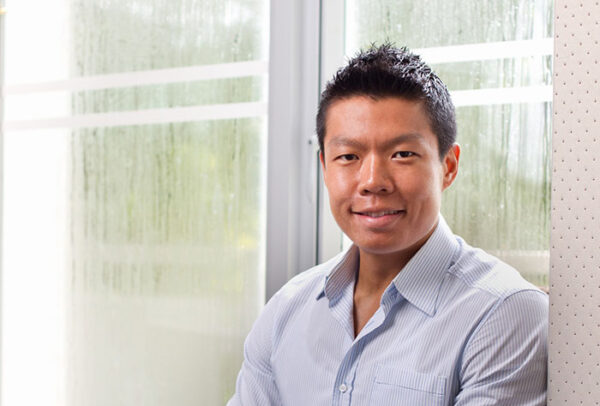How I broke into banking as an engineer, and the MBA that helped me get there

Media Coverage by eFinancialCareers:
In May 2013 Herman Kam left his job as a product quality engineer for Toyota after a six year-career in the American auto industry. By 2015 Kam had moved to Hong Kong and had landed a job in transaction banking at Citi.
How did he manage such a dramatic career change?
“It’s possible to move to banking with transferable skills, lots of drive and – importantly – with the right Masters qualification,” says Kam. “I come from a process background in engineering, and at its heart transaction banking is also about developing efficient processes – so I already had some of the skills.”
Kam also felt he needed a post-graduate degree that would help him “break into banking” – and that’s why he enrolled on the MBA course from The Chinese University of Hong Kong (CUHK).
“I felt I was siloed in the US auto sector and I wanted to work across several sectors and countries – so Asian banking appealed. I chose the CUHK MBA because it provides the strong leadership skills needed for a regional role, and working on group projects with people of different nationalities replicates a regional job.”
Kam is far from the only CHUK MBA graduate who’s used the degree to get their first job in financial services.
Kelvin Chiu, now an assistant vice president on the stock loan and equity finance trading desk at Citi in Hong Kong, started his career as a project leader for Ontario Power Generation in Canada. “The industry was interesting but the culture and pace of work just wasn’t for me. It was difficult to see myself staying in that environment for the long-term,” he says.

Unlike Kam, Chiu didn’t initially target working in a particular part of financial services – it was during the CUHK course that he found his niche. “As my understanding of the financial industry progressed, I found that I enjoyed a more fast-paced and dynamic environment. Hence I was drawn to roles within sales and trading.”
The CUHK MBA allows aspiring banking professionals to take a module focused purely on finance. They study financial management and portfolio management as well as electives such as mergers and acquisitions, money and capital markets, and venture capital and private equity.
Chiu and Kam say they were also exposed to financial professionals – including lecturers and visiting alumni – throughout their degrees. Being able to ask industry experts for advice is “invaluable” for people with no prior experience in the finance sector, says Chiu.
“For me, it was great that many of my classmates had financial services experience in Asia. It facilitated my learning and was a big plus during course projects and discussions. And when I graduated I had established a network of colleagues to help my transition into the industry in Hong Kong.”
Students who want to make a career change into banking can also apply – typically via CUHK’s career management centre – to do an internship at a bank during their MBA. Chiu did his at Citi in 2013.
“It was my first job in financial services and it gave me more insight into the roles and functions within a bank. My internship involved working alongside a sales team to prepare pitch materials and market analysis, which helped me understand the client environment and apply some of the things I had learned at business school.”
Chiu warns that MBA students seeking their first banking job shouldn’t underestimate how hard it is to make the move after starting their early career in another sector. “Hong Kong is a major financial centre and the job market is competitive enough even with banking experience. While some potential employers prefer previous industry experience, others like Citi value a more diverse background and skill set in their candidates. At the end of my internship they extended an offer to me, which I gladly accepted.”
If you’re planning a big career change, Chui says there’s one thing all banks need you to show: commitment to seeing it through. “They want more than just technical skills. For me, relocating to a financial hub and investing in the MBA was one of the big ways I was able to prove that I possessed the drive and ambition to build a successful career in the financial industry.”
Media: eFinancialCareers
Section: News
Date published: Apr 12, 2016

